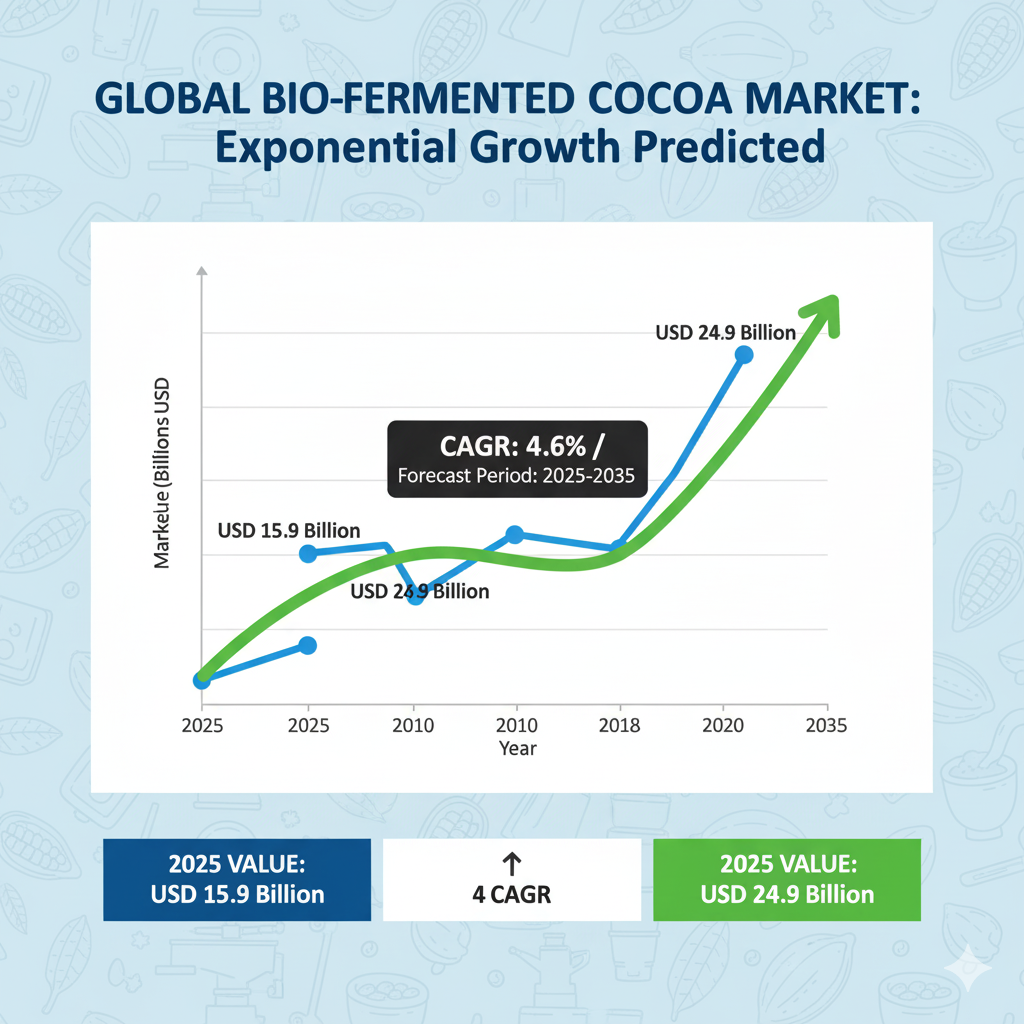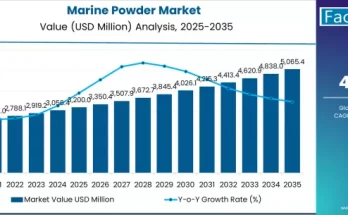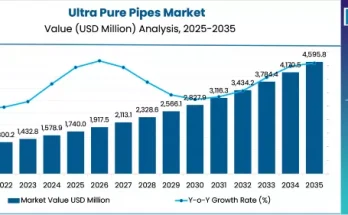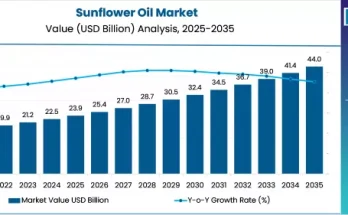The global Bio-Fermented Cocoa market is expected to reach USD 24.9 Billion by 2035, up from estimated value of USD 15.9 Billion in 2025. During the forecast period 2025 to 2035, the industry is projected to expand at a CAGR of 4.6%. This growth reflects a paradigm shift towards sustainable sourcing, advanced fermentation technologies, and high-value cocoa ingredients that appeal to health-conscious and environmentally conscious consumers worldwide.
The latest Fact.MR report (FACT11131MR) emphasizes that controlled microbial inoculation, which accounted for 30% of the market in 2025, is leading the transformation of the fermentation segment by ensuring consistent flavor, traceability, and premium quality—critical for global manufacturers focused on innovation and clean-label products.
Driving Forces: Sustainability, Innovation, and Consumer Demand:
The expansion of the bio-fermented cocoa industry is propelled by the growing global focus on sustainably sourced, specialty, and climate-resilient cocoa varieties, which deliver enhanced flavor, antioxidant content, and bioactive compounds. These attributes align closely with rising consumer interest in functional foods, plant-based products, nutraceuticals, and premium chocolates.
“The bio-fermented cocoa market is evolving beyond traditional chocolate manufacturing,” said a spokesperson from Fact.MR. “With advanced fermentation and climate-smart sourcing, manufacturers can achieve both high-quality functional ingredients and long-term sustainability goals, paving the way for the next generation of cocoa-based innovations.”
Market Highlights:
- Market Value (2025): USD 15.9 Billion
- Projected Value (2035): USD 24.9 Billion
- CAGR (2025–2035): 4.6%
- Leading Fermentation Method: Controlled Microbial Inoculation (30% share in 2025)
- Fastest Growing Country: United States (CAGR of 3.8% between 2025–2035)
- Top Industry Players: Barry Callebaut AG, Cargill, Olam International, Mars, Mondelez International, The Hershey Company, Nestlé S.A.
Global Growth Opportunities:
North America is at the forefront of innovation, driven by robust R&D ecosystems, AI-powered agricultural practices, and strong demand for plant-based and functional cocoa ingredients. In particular, the United States is emerging as a leader with strategic collaborations between startups, established manufacturers, and regenerative farming initiatives.
Western Europe continues to prioritize premium chocolate, traceability, and ethical sourcing, with Germany and the U.K. witnessing strong adoption of specialty cocoa varieties and climate-resilient fermentation techniques to meet growing consumer expectations for clean-label, sustainable products.
Meanwhile, East Asia is experiencing significant momentum due to government-backed sustainable agriculture initiatives and urban consumers’ rising interest in functional and plant-based nutrition.
Key Trends Shaping the Market:
- Controlled Fermentation & Enzyme-Assisted Processes: Ensuring consistent quality and unlocking unique flavor profiles.
- Specialty & Heirloom Varieties: Including Trinitario and Criollo beans, known for their premium flavors and climate resilience.
- Advanced Supply Chain Solutions: Blockchain-enabled traceability and AI-powered crop monitoring driving transparency.
- Functional Product Integration: Growth in nutraceuticals, supplements, and plant-based beverages using fermented extracts and concentrates.
- Clean-Label and Climate-Smart Farming: Driving innovation, consumer trust, and competitive positioning for premium products.
Market Challenges:
While opportunities abound, the market faces challenges such as high production costs, limited access to climate-resilient cocoa varieties, and scalability constraints for small-scale producers. Price sensitivity among end consumers and regional climatic fluctuations further complicate consistent supply.
However, strategic investments in bioreactor-based fermentation technologies, regenerative agriculture, and collaborative R&D networks can address these barriers, presenting lucrative opportunities for both established players and startups.
Competitive Landscape:
Industry leaders such as Barry Callebaut AG, Cargill, Olam International, Mars, Mondelez International, The Hershey Company, and Nestlé S.A. continue to dominate through sustainable sourcing initiatives, advanced fermentation technologies, and strong collaborations across the food and beverage sector.
The market is also witnessing disruptive innovation from emerging startups in precision fermentation and climate-smart cocoa production, delivering agility and driving faster adoption of traceable, premium, and functional ingredients.
Recent breakthroughs include:
- June 2025: California Cultured scaled lab-grown cocoa production to commercial levels, presenting a viable, sustainable alternative to traditional farming.
- September 2024: Prefer, a Singapore-based startup, launched soluble cocoa powders developed through advanced fermentation processes, reducing resource use and improving supply chain efficiency.
Investment Outlook:
The Fact.MR 2025 survey, involving over 10,000 stakeholders including manufacturers, agri-tech developers, and sustainability advisors, highlights a surge in investments targeting:
- Precision fermentation infrastructure
- Specialty bean cultivation
- AI-based monitoring and blockchain-enabled supply chains
- Functional product development for nutraceuticals and plant-based sectors
This data-driven insight underscores the urgent need for global manufacturers to align strategies with evolving consumer preferences and sustainability mandates, positioning themselves as pioneers in the bio-fermented cocoa revolution.
Strategic Call to Action:
For industry leaders, manufacturers, and investors, the rapidly evolving bio-fermented cocoa market represents a strategic growth frontier. Companies that integrate sustainable sourcing, advanced fermentation processes, and traceable supply chains will gain a competitive edge in meeting global demand for premium, health-focused, and environmentally friendly cocoa-based products.
“Bio-fermented cocoa is not just a commodity; it’s the foundation for the future of sustainable and functional food innovation,” added the Fact.MR spokesperson. “Stakeholders who act now will shape the future of this high-growth, high-impact market.”
Browse Full report: https://www.factmr.com/report/bio-fermented-cocoa-market



